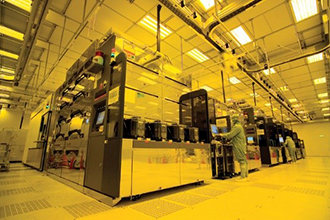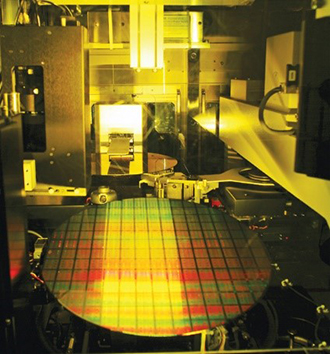Doubts about whether U.S. officials will come through with federal and state funding for a planned Taiwan Semiconductor Manufacturing Co. Ltd. facility in Arizona could sink the deal, though company representatives say TSMC remains committed — for now.
President Donald Trump's administration heralded the May announcement of the planned $12 billion semiconductor fabrication plant as a big win for national security given that it would expand domestic production of a key technology with one of the world's largest, most advanced chipmakers. Although U.S.-based companies dominate the sale and design of advanced semiconductors, only 10% of facilities able to physically produce semiconductors are in the U.S.; 80% of semiconductor fabrication facilities are in Asian countries, according to the Semiconductor Industry Association.
The planned Phoenix plant would be TSMC's second in the U.S. The company has another chipmaking facility in Camas, Wash., as well as chip design centers in Austin, Texas, and San Jose, Calif.
TSMC has long resisted building more in the U.S. due to the cost, and it has been clear in its public statements that it expects state and federal support to offset the additional cost of building such a facility away from its core infrastructure and supply chain. U.S. officials thus far have declined to publicly confirm any details of that commitment, though the Arizona plant announcement from TSMC referred to "a mutual understanding and commitment of support" from federal and state officials.
Building the plant in the U.S. would drive up the overall cost by at least 10% to 20%, according to Brian Matas, vice president of market research at IC Insight, a research firm focused on the semiconductor industry.
Employees at TSMC's Fab. No. 14 in Taiwan can produce more than 100,000 12-inch wafers per month. The planned Arizona facility would produce 20,000. |
Asked about the potential for a U.S. facility during the company's April earnings call, TSMC Chairman Mark Liu noted "a cost gap [for U.S. facilities], which is hard to accept at this point."
In addition to seeking government subsidies, TSMC is accustomed to having its customers, including Apple Inc., subsidize the cost of expansions required to meet their needs, according to Linley Gwennap, president and principal analyst of the semiconductor-industry consulting firm The Linley Group.
A bipartisan group of federal legislators in June introduced a bill that would set aside $22.8 billion in incentives to expand semiconductor manufacturing facilities in the U.S., which TSMC officials indicated they expect would include funding for their facility as well as others. Yet there has been no confirmation thus far that the Creating Helpful Incentives to Produce Semiconductors for America Act, or CHIPS for America Act, would include money for TSMC.
"U.S. adoption of forward-looking investment policies such as CHIPS bill to enable a globally competitive environment for a leading-edge semiconductor technology operation in the U.S. will be crucial to the success of this project," TSMC Deputy Spokesperson Nina Kao wrote in a recent email to S&P Global Market Intelligence. "It will also give us the confidence this and other future investments by TSMC and its supply chain companies will be successful."
Details of the negotiation between TSMC and Trump administration officials remain unclear, though some Democratic senators have pressed Secretary of State Mike Pompeo for more information.
S&P Global Market Intelligence's calls to the State and Commerce departments were referred to Arizona Governor Doug Ducey's office, whose staff referred them to the Arizona Commerce Authority, which was authorized only to re-send press releases regarding the facility announcement.
A 12-inch wafer in TSMC's Fab. No. 12 in Taiwan. |
State employees were restricted from providing additional information by nondisclosure agreements, though one source involved in the planning said the project was moving forward even though TSMC had not submitted any plans. The company is in the midst of doing due diligence before deciding on or negotiating the purchase of a location for the plant, the source said. After the CHIPS bill was introduced, state staffers were told to expect TSMC to file its initial plans in early February 2021.
"This is happening; this is no Foxconn," said the source, referring to a 2017 development deal under which more than $4 billion in incentives were offered by federal and state governments to accelerate the effort of Apple supplier Foxconn to build a $10 billion factory in Wisconsin. That project has seen many delays.
Whether the TSMC deal is more successful appears to depend on the willingness of the U.S. to follow through on TSMC's understanding of promised subsidies.
At the company's June 9 annual shareholder meeting, Chairman Mark Liu reiterated TSMC's expectations about the deal.
"Subsidies will be a key factor in TSMC's decision to set up a fab in the U.S.," Liu told reporters from various media outlets. "We are still talking to the U.S. government."





